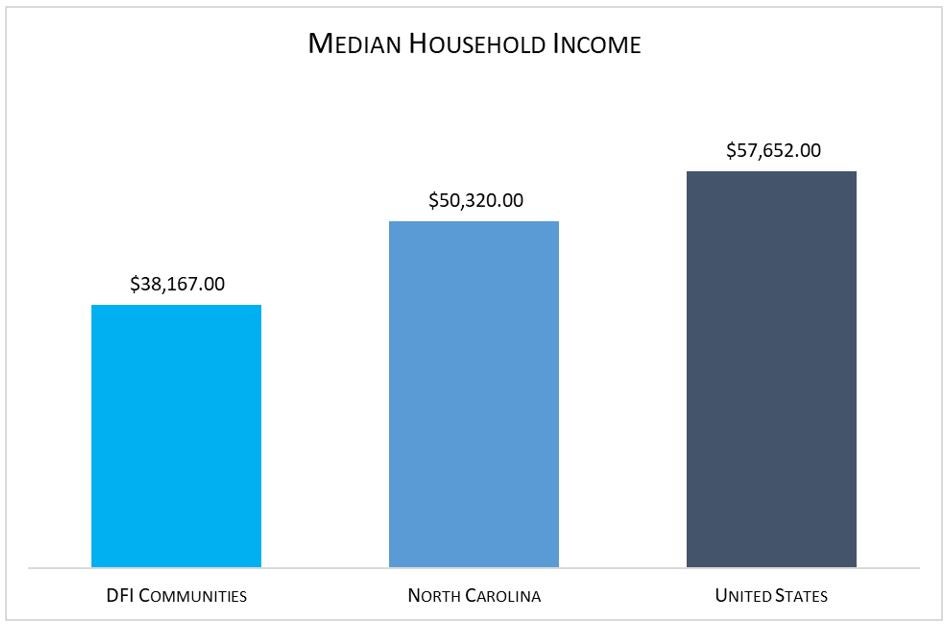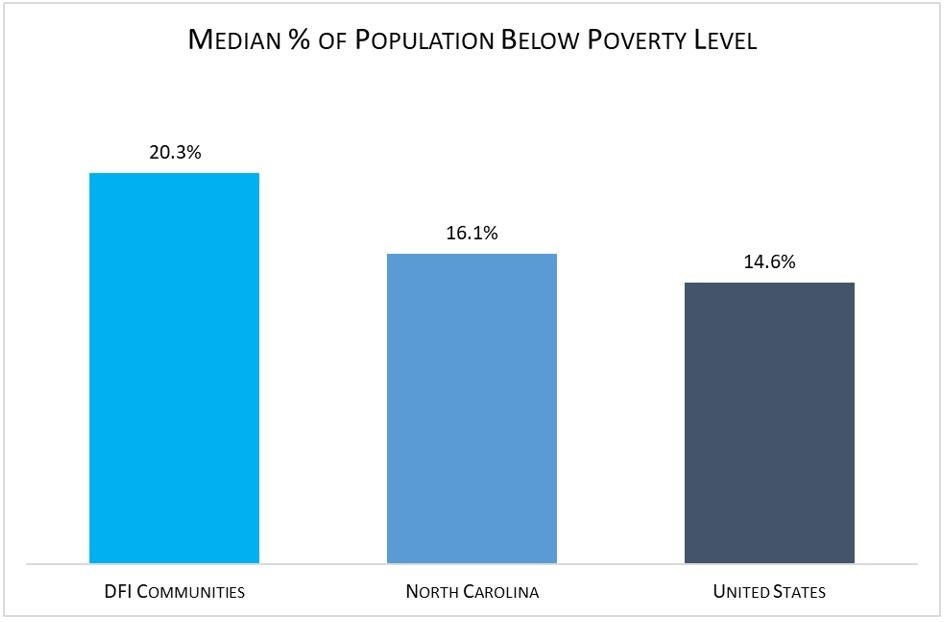
The mission of the School of Government is to improve the lives of North Carolinians through training, advising, and scholarship for public officials. However, when it became clear that a phone call or email exchange would not be adequate help for a local government trying to navigate the complex world of private development, faculty member Tyler Mulligan created the Development Finance Initiative (DFI). A common criticism of academic institutions is that the knowledge produced rarely yields real-world impact for the surrounding communities, but the 134 projects UNC DFI has worked on over the last eight years tell a different story.
DFI’s service to the state is a story of hope for North Carolina’s future. Housed at UNC, DFI has partnered with geographically and economically diverse communities, from urban metropolitans to rural towns, and spanning 38 Senate (76%) and 66 House districts (55%) in North Carolina. DFI is investing time and expertise in the areas of North Carolina that need it most – those with limited resources.
Since 2011, UNC DFI has collaborated with local governments across the state, whose collective populations total approximately 3.1 million North Carolinians. DFI partner communities have populations ranging in size from 110 in Seven Springs to 900,993 in Wake County, and median incomes ranging from $17,424 in Boone to $120,658 in Davidson. Of all communities served by DFI, the median population size is 8,461, the median income is $38,167, and the median percentage of residents living below the poverty level is 20.3%. Based on 2010 Census determinations, 49% of all DFI projects have taken place rural communities, and 76% of DFI projects take place in communities with more than 15% of residents living below the poverty level.
The median community served by UNC DFI has a population under 9,000, a median household income well-below the national median (Figure 1), and a greater proportion of the population living below the poverty-line (Figure 2). The investments DFI helps these communities to attract offers a chance to change these statistics and an opportunity to revitalize their futures.
UNC DFI is not an academic institution generating knowledge in isolation; DFI is a community-focused organization tangibly addressing the needs of local governments across the state. Some of North Carolina’s most distressed communities have turned to DFI for support. Following UNC’s pillar “of the public, for the public,” DFI has invested thousands of person-hours to foster real change to the economic and physical landscapes of underserved communities across North Carolina.
Figure 1. Median household income based on data from the 2013-2017 American Community Survey
Figure 2. Median population below the poverty level based on data from the 2013-2017 American Community Survey
Our methodology
All UNC DFI project locations were matched to publicly available data from the 2010 U.S. Census, the 2013-2017 American Community Survey (ACS), and the North Carolina Find My Legislator website.
A few things to note:
- In total DFI has produced 134 projects across North Carolina to date; however not all 134 were included in the analyses.
- Two were excluded from the legislative district analysis as they did not include the location information needed to determine the legislative district. This brought the total included in the legislative analyses to 132.
- One was excluded from the demographic analysis as it took place in a community whose demographics were not included on the US Census Bureau website. This brought the total included in the demographic analyses to 133.
- Legislators included in this analysis are those currently in office. Some DFI projects occurred during previous legislative sessions with different elected officials.
- Classifications of DFI projects as Urbanized Area, Urban Cluster, or Rural were based off the list provided on the US Census Bureau website from the 2010 Census.
Sarah Mye is the School of Government’s Leadership Team Project Manager. Her work focuses on impact measurement. She holds an MPH in health behavior from UNC-Chapel Hill and a BA in psychology and political science from the State University of New York at Buffalo.


